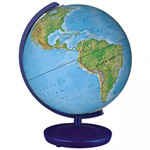Global Integrative Studies, School of

School of Global Integrative Studies: Faculty Publications
Document Type
Article
Date of this Version
12-2020
Citation
Ecocene (December 2020) 1(2): 92-108.
doi: 10.46863/ecocene.6
Abstract
In this article, we examine the link between environmental consciousnesses and time consciousness. We argue that the way people think about time shapes their experience of climate change threats. We contrast western hegemonic concepts of time—the Gregorian Calendar, the Dooms Day Clock, linear time—with the way Barbudans of Antigua and Barbuda, an island nation in the Caribbean experience time—cyclical, through boom and bust cycles. We found that this boom and bust framework was indeed supported by climate change and weather experiences on the island—hurricanes, droughts, changes in the lagoons—as well as economic experiences—cargo boat delays bringing supplies, paycheck delays. By understanding local explanatory models of time, especially those that contrast to western climate science frameworks of time, better solution-driven work can be achieved in the face of climate change realities.


Comments
Copyright 2020, the author. Open access material.
License: Creative Commons Attribution 4.0 International (CC BY 4.0)